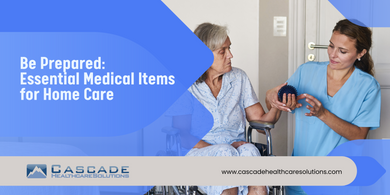Having the right medical supplies at home can offer a sense of security and peace of mind, especially for family caregivers and those managing chronic conditions, recovering from injuries. But navigating the vast array of options can be overwhelming. This article aims to guide you through the essentials, helping you create a well-stocked home care kit tailored to your specific needs.
First Aid Fundamentals:
Every home needs a well-equipped first-aid kit. Look for a pre-assembled kit or build your own with essential items like:
- Bandages in various sizes:Gauze pads,adhesive bandages,elastic wraps for sprains
- Antiseptic wipes and solutions:To clean wounds and prevent infection
- Antibiotic ointment:For minor cuts and scrapes
- Tweezers and scissors:For removing splinters and dressings
- Thermometer:To monitor temperature for fevers
- Cold compress:For reducing swelling and pain
- Pain relievers:Over-the-counter options like acetaminophen or ibuprofen
- Allergy medications:If applicable,stock antihistamines or other prescribed medications
Beyond the Basics:
Depending on your individual needs, consider adding these items:
- Chronic condition management:Blood pressure monitor,blood sugar meter,inhalers,etc.
- Wound care supplies:Sterile dressings,gauze rolls,adhesive tape
- Mobility aids:Canes,crutches,walkers,grab bars (if needed)
- Personal care items:Disposable gloves,sanitizer,wipes,bedpans (if needed)
- Comfort measures:Heating pads,ice packs,thermometers,humidifiers
Remember:
- Personalize your kit:Tailor it to your specific health needs and family circumstances.
- Check expiration dates:Regularly replace expired medications and supplies.
- Store safely:Keep your kit in a cool,dry,and easily accessible location.
- Consult your doctor:Discuss your home care needs and get guidance on specific supplies.
Additional Tips:
- Invest in a first-aid manual for basic wound care and emergency procedures.
- Learn basic life-saving skills like CPR and first aid.
- Consider storing important medical documents like prescriptions and insurance information with your kit.
Remember, being prepared is key! Having the right medical items at home can empower you to handle minor injuries, manage chronic conditions, and provide basic care for loved ones, offering peace of mind and promoting overall well-being.
Disclaimer: This article is for informational purposes only and should not be interpreted as medical advice. Please consult your healthcare professional for personalized guidance on your specific needs.
Need help putting together a Home Care package - reach out to me at kevin@cascadehealthcaresolutions.com

 Help
Help 



